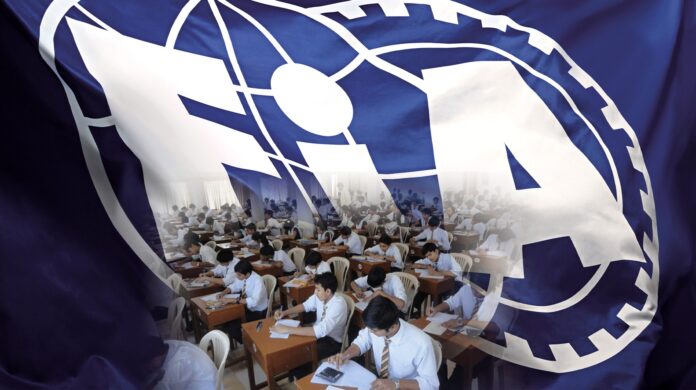The Federal Investigation Agency (FIA) has issued call-up notices to numerous students who scored over 90 percent in the September 22 Medical and Dental College Admissions Test (MDCAT), questioning the credibility of their high marks. The agency plans to conduct mock exams for these candidates as part of its investigation into allegations of a paper leak.
Following court orders, the Sindh government formed a six-member inquiry committee on October 10 to investigate irregularities surrounding the MDCAT. The committee was tasked with identifying any criminal and civil liabilities, examining potential paper leaks through forensic investigation, and analyzing the scores, particularly those showing unusually high results, against candidates’ prior academic records and regional performance patterns.
On October 26, the Sindh High Court (SHC) ruled that the MDCAT be retaken within a month, citing that the integrity of the test process had been compromised. The court also mandated the FIA to complete its inquiry within two months.
In Karachi, the FIA’s Cyber Crime Circle has summoned several students, asking them to appear before inquiry officers for questioning. Two of these call-up notices, reviewed by Dawn, were issued by Inspector Arfa Saeed to female students who had obtained extremely high scores. The notices state that the investigation suggests that obtaining scores as high as 97 percent is “not practically possible,” and this discrepancy indicates potential involvement in the alleged leak. The students have been directed to bring their original identification cards and are warned that failure to comply could lead to legal action.
As part of the inquiry, the students will be required to take a mock exam to allow officials to assess the authenticity of their high scores.
The inquiry report presented to the SHC highlighted a concerning distribution of high scores across districts in Sindh, revealing an unusual pattern: students from certain rural districts, like Tharparkar and Sujawal, scored significantly higher than those from urban areas such as Karachi and Hyderabad. Specifically, 7.92 percent of students in Tharparkar and 7.32 percent in Sujawal scored 187 or higher, compared to only 1.18 percent in Karachi and 1.47 percent in Hyderabad, a trend that raises questions about the fairness and transparency of the MDCAT process.




